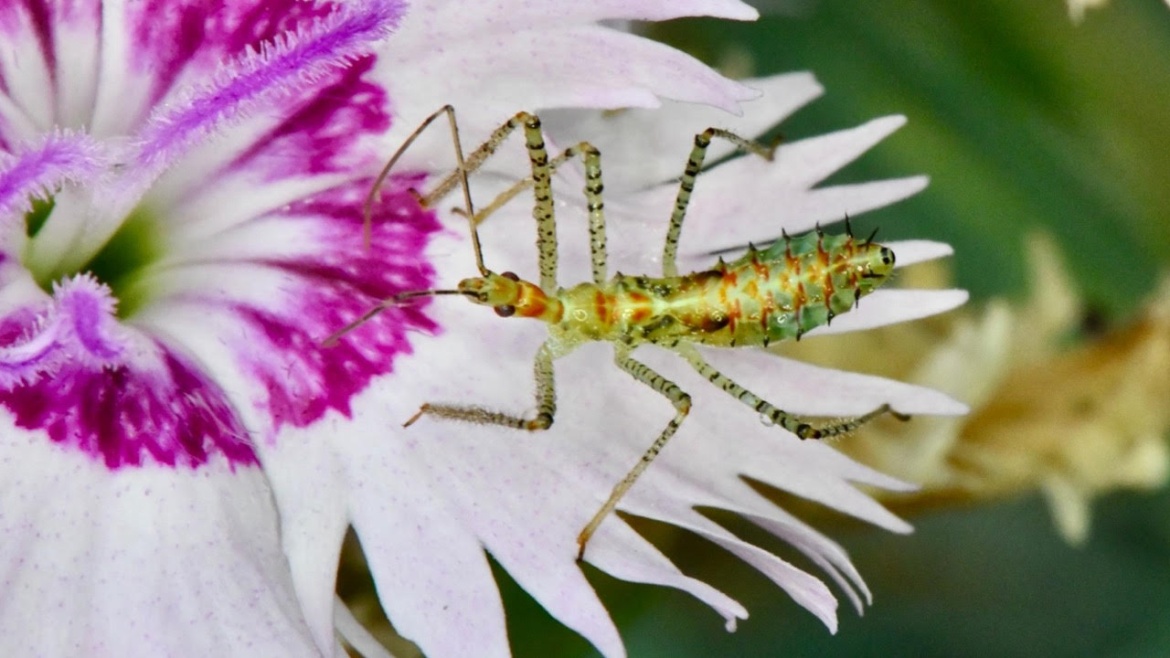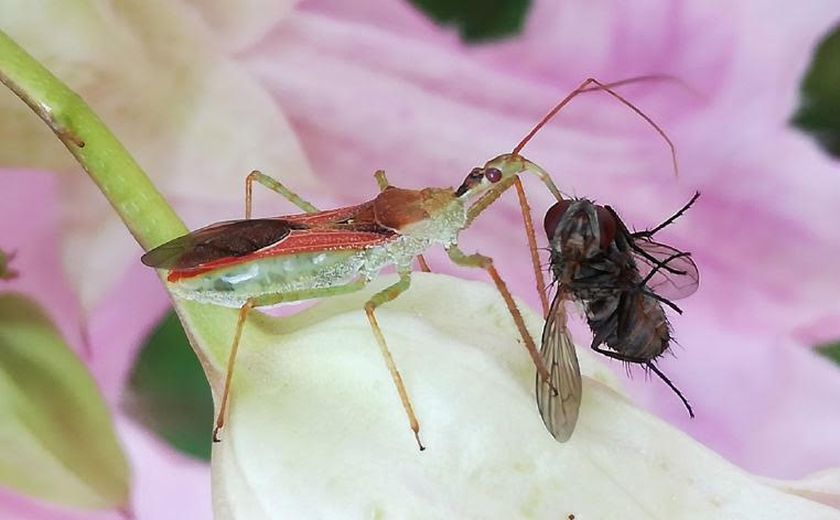About a tiny American insect, recently introduced into the Iberian peninsula, and popularly known as the “killer insect”.
 Photo: Antonio Cruz.
Photo: Antonio Cruz.
In the book of Ecclesiastes we read; “There is a time for everything, and a season for every activity under the heavens” (Ecc. 3:1). Moreover, we now know, in the light of Einstein’s discoveries, that time and space are inextricably linked. They both came into existence together and will probably die together. Thus our lives are shaped not only by the hands of the clock, but also by the local physical setting in which we act.
Nonetheless, while this has always been so, nowadays it has been profoundly disrupted by our obsession with overcoming all our limitations at the greatest possible speed. Boundaries of any kind are no longer tolerated. Now the watchword seems to be pushing as many frontiers as possible as far as possible, and wrenching everything from its natural place. One of the biological consequences of this obsession is that of altering nature’s ecosystems.
Humans have been frenetically transferring species from one side of the planet the other. This usually harms the host systems because the organisms that are thus introduced, now free from the predators that fed on them in their original habitat, breed excessively and significantly diminish the native, hitherto balanced, populations.

Photo: Verde y azul.
A tiny American insect, recently introduced into the Iberian peninsula, and popularly known as the “killer insect”, illustrates this phenomenon very well. Its name says it all. It is a hemipteran insect. That is to say, it belongs to an genus which is characterised by a mouth adapted to being able to bite and suck the internal juices from other insects.
This makes it a formidable predator, despite its very small size. It belongs to the Reduviidae family of blood-sucking insects. The scientific name of the species is the Zelus renardii, which, though native to North and Central America, spread through the oceanic archipelagos of Hawaii, the Philippines, Samoa etc., and was identified for the first time in Greece in 2010. Two years later, it appeared in Murcia and in 2020 was photographed in Tarragona and later in Barcelona, from where it continued to spread northwards. It can also act on human beings, delivering painful stings, which nevertheless do not pose a serious risk.
Some days ago, while watering a little roof garden in Terrassa (Barcelona), I came across a young specimen of this insect resting on a carnation (Dianthus chinensis). At this early stage, it is barely possible to make out the rudiments of the wings they possess as adults. However, even then they can trap flies and other insects that are attracted to flowers by their nectar. Due to a sticky substance on their legs, they can easily fasten onto their prey and literally suck the life out of them. This is an invasive species which poses a threat to autochthonous fauna as it feeds on a wide range of insects, it reproduces quickly, spreads extensively and can adapt well to both moderate and tropical climates.
When the ecosystems created by God are disrupted, the human perpetrators of such disruption are responsible before God for the environmental impacts. Failure to respect or obey his will has always been a source of unsuspected evils. If the environmental crisis puts an end to humankind on the planet, we cannot blame the Creator, but rather human egotism and recklessness. But perhaps there is still time to repent and change the outcomes. Maybe we can be reborn, and open our souls to the mercy of the God of the cosmos.

Las opiniones vertidas por nuestros colaboradores se realizan a nivel personal, pudiendo coincidir o no con la postura de la dirección de Protestante Digital.
Si quieres comentar o